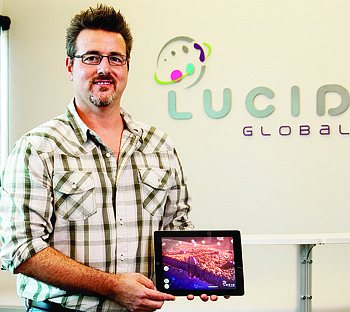- December 15, 2025
-
-
Loading

Loading

Sharecare, a digital health company that helps people manage health records in one place, co-founded by celebrity TV medical professional Dr. Mehmet Oz, has acquired Sarasota-based medical virtual reality firm BioLucid.
Financial terms of the deal, announced at Advertising Week 2016, weren't released.
BioLucid, founded in 2011, has a host of medical virtual reality products, including a holographic projection float shown on a high-definition screen. So a doctor talking to a patient about a liver procedure, for instance, can provide a 3-D preview on an iPad of what's going to happen. Several products the company has developed are patent-pending. The company will continue to operate from its downtown Sarasota office, under the name Sharecare Reality Lab.